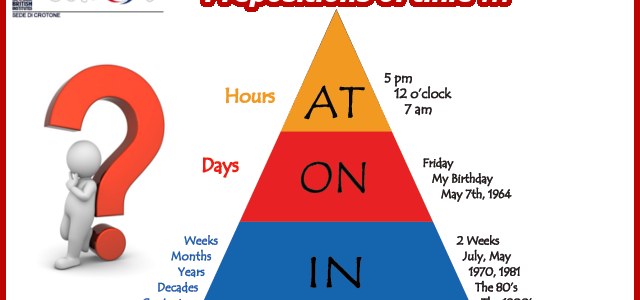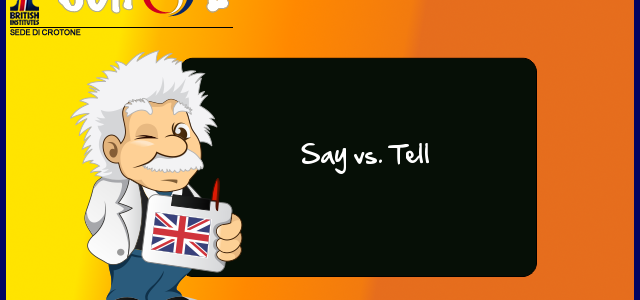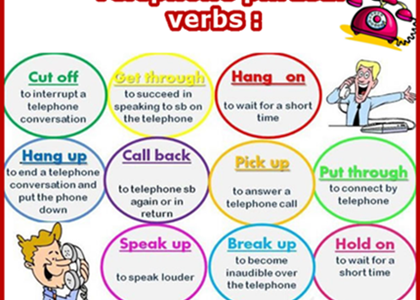Per chi non sapesse cosa sono i Phrasal Verbs consiglio di leggere questo articolo: Phrasal Verb lesson 1 .
Oggi vediamo alcuni Phrasal Verbs utili durante le conversazioni telefoniche:
- Cut off = to interrupt a telephone conversation : è caduta la comunicazione, telefono isolato
Example:
Our phone line was cut off because we forgot to pay the bill last month = La nostra linea telefonica è stata interrotta perchè ci siamo dimenticati di pagare la bolletta lo scorso mese.
- Get through = to succeed in speaking to somebody on the phone : riuscire a contattare qualcuno al telefono
Example :
I’m trying to get through to my boss but he’s not answering his phone. = Sto cercando di contattare il mio capo, ma non risponde al telefono.
- Hang on = to wait for a short time : aspettare per poco tempo
Example:
A: Can I make an appointment for tomorrow? = Posso prendere un appuntamento per domani?
B: Hang on! I need to check if there are any spots free. = Un attimo! Ho bisogno di controllare se ci sono posti liberi
- Hang up = to end a telephone conversation and put the phone down : riagganciare il telefono
Example:
I was arguing with my friend and she hung up on me ! = Stavo discutendo con la mia amica e lei mi ha riagganciato in faccia !
- Call back = to telephone somebody again or in return = richiamare
Example:
I’ll call back when I can. = Richiamo appena posso.
- Pick up = to answer a telephone call : rispondere al telefono
Example:
I let the phone ring for ages but he didn’t pick up. = Ho fatto squillare il telefono per tanto tempo ma non ha risposto!
- Put through = to connect by telephone : mettere in linea, passare la comunicazione
Example:
I’ll put you through to the switchboard.= Passo la comunicazione al centralino.
- Speak up = to speak louder : parlare più forte
Example:
Could you speak up, please? I can’t hear you well. = Può parlare più forte perfavore? Non riesco a sentirla bene.
- Break up = to become inaudible over the telephone : a volte perdere il segnale telefonico e quindi diventare impercettibile.
Example:
You are breaking up, I hear you very bad = Stai perdendo il segnale, ti sento poco.
- Hold on = to wait : attendere in linea
Example :
A: Can I talk to Camille? = Posso parlare con Camille?
B: Hold on. I’ll see if she’s here. = Aspetti. Vedo se è qui.






